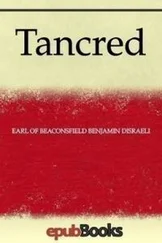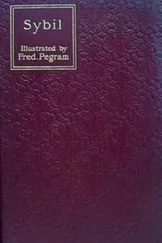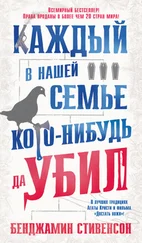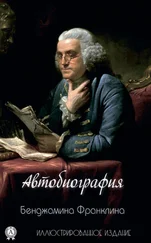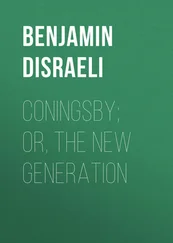Бенджамин Дизраэли - Coningsby
Здесь есть возможность читать онлайн «Бенджамин Дизраэли - Coningsby» весь текст электронной книги совершенно бесплатно (целиком полную версию без сокращений). В некоторых случаях можно слушать аудио, скачать через торрент в формате fb2 и присутствует краткое содержание. Год выпуска: 2014, Издательство: epubBooks Classics, Жанр: Классическая проза, на английском языке. Описание произведения, (предисловие) а так же отзывы посетителей доступны на портале библиотеки ЛибКат.
- Название:Coningsby
- Автор:
- Издательство:epubBooks Classics
- Жанр:
- Год:2014
- ISBN:нет данных
- Рейтинг книги:4 / 5. Голосов: 1
-
Избранное:Добавить в избранное
- Отзывы:
-
Ваша оценка:
- 80
- 1
- 2
- 3
- 4
- 5
Coningsby: краткое содержание, описание и аннотация
Предлагаем к чтению аннотацию, описание, краткое содержание или предисловие (зависит от того, что написал сам автор книги «Coningsby»). Если вы не нашли необходимую информацию о книге — напишите в комментариях, мы постараемся отыскать её.
Coningsby — читать онлайн бесплатно полную книгу (весь текст) целиком
Ниже представлен текст книги, разбитый по страницам. Система сохранения места последней прочитанной страницы, позволяет с удобством читать онлайн бесплатно книгу «Coningsby», без необходимости каждый раз заново искать на чём Вы остановились. Поставьте закладку, и сможете в любой момент перейти на страницу, на которой закончили чтение.
Интервал:
Закладка:
Nothing was to be done but to put a tolerably good face upon it. 'Embrace Lord Monmouth for me,' said Coningsby to his fair friends, 'and tell him I think it very unkind that he did not ask me to dinner with you.'
Coningsby said this with a gay air, but really with a depressed spirit. He felt convinced that his grandfather was deeply displeased with him; and as he rode away from the villa, he could not resist the strong impression that he was destined never to re–enter it. Yet it was decreed otherwise. It so happened that the idle message which Coningsby had left for his grandfather, and which he never seriously supposed for a moment that his late companions would have given their host, operated entirely in his favour. Whatever were the feelings with respect to Coningsby at the bottom of Lord Monmouth's heart, he was actuated in his refusal to see him not more from displeasure than from an anticipatory horror of something like a scene. Even a surrender from Coningsby without terms, and an offer to declare himself a candidate for Darlford, or to do anything else that his grandfather wished, would have been disagreeable to Lord Monmouth in his present mood. As in politics a revolution is often followed by a season of torpor, so in the case of Lord Monmouth the separation from his wife, which had for a long period occupied his meditation, was succeeded by a vein of mental dissipation. He did not wish to be reminded by anything or any person that he had still in some degree the misfortune of being a responsible member of society. He wanted to be surrounded by individuals who were above or below the conventional interests of what is called 'the World.' He wanted to hear nothing of those painful and embarrassing influences which from our contracted experience and want of enlightenment we magnify into such undue importance. For this purpose he wished to have about him persons whose knowledge of the cares of life concerned only the means of existence, and whose sense of its objects referred only to the sources of enjoyment; persons who had not been educated in the idolatry of Respectability; that is to say, of realising such an amount of what is termed character by a hypocritical deference to the prejudices of the community as may enable them, at suitable times, and under convenient circumstances and disguises, to plunder the public. This was the Monmouth Philosophy.
With these feelings, Lord Monmouth recoiled at this moment from grandsons and relations and ties of all kinds. He did not wish to be reminded of his identity, but to swim unmolested and undisturbed in his Epicurean dream. When, therefore, his fair visitors; Clotilde, who opened her mouth only to breathe roses and diamonds, and Ermengarde, who was so good–natured that she sacrificed even her lovers to her friends; saw him merely to exclaim at the same moment, and with the same voices of thrilling joyousness,—
'Why did not you ask him to dinner?'
And then, without waiting for his reply, entered with that rapidity of elocution which Frenchwomen can alone command into the catalogue of his charms and accomplishments, Lord Monmouth began to regret that he really had not seen Coningsby, who, it appeared, might have greatly contributed to the pleasure of the day. The message, which was duly given, however, settled the business. Lord Monmouth felt that any chance of explanations, or even allusions to the past, was out of the question; and to defend himself from the accusations of his animated guests, he said,
'Well, he shall come to dine with you next time.'
There is no end to the influence of woman on our life. It is at the bottom of everything that happens to us. And so it was, that, in spite of all the combinations of Lucretia and Mr. Rigby, and the mortification and resentment of Lord Monmouth, the favourable impression he casually made on a couple of French actresses occasioned Coningsby, before a month had elapsed since his memorable interview at Monmouth House, to receive an invitation again to dine with his grandfather.
The party was agreeable. Clotilde and Ermengarde had wits as sparkling as their eyes. There was a manager of the Opera, a great friend of Villebecque, and his wife, a splendid lady, who had been a prima donna of celebrity, and still had a commanding voice for a chamber; a Carlist nobleman who lived upon his traditions, and who, though without a sou, could tell of a festival given by his family, before the revolution, which had cost a million of francs; and a Neapolitan physician, in whom Lord Monmouth had great confidence, and who himself believed in the elixir vitae, made up the party, with Lucian Gay, Coningsby, and Mr. Rigby. Our hero remarked that Villebecque on this occasion sat at the bottom of the table, but Flora did not appear.
In the meantime, the month which brought about this satisfactory and at one time unexpected result was fruitful also in other circumstances still more interesting. Coningsby and Edith met frequently, if to breathe the same atmosphere in the same crowded saloons can be described as meeting; ever watching each other's movements, and yet studious never to encounter each other's glance. The charms of Miss Millbank had become an universal topic, they were celebrated in ball–rooms, they were discussed at clubs: Edith was the beauty of the season. All admired her, many sighed even to express their admiration; but the devotion of Lord Beaumanoir, who always hovered about her, deterred them from a rivalry which might have made the boldest despair. As for Coningsby, he passed his life principally with the various members of the Sydney family, and was almost daily riding with Lady Everingham and her sister, generally accompanied by Lord Henry and his friend Eustace Lyle, between whom, indeed, and Coningsby there were relations of intimacy scarcely less inseparable. Coningsby had spoken to Lady Everingham of the rumoured marriage of her elder brother, and found, although the family had not yet been formally apprised of it, she entertained little doubt of its ultimate occurrence. She admired Miss Millbank, with whom her acquaintance continued slight; and she wished, of course, that her brother should marry and be happy. 'But Percy is often in love,' she would add, 'and never likes us to be very intimate with his inamoratas. He thinks it destroys the romance; and that domestic familiarity may compromise his heroic character. However,' she added, 'I really believe that will be a match.'
On the whole, though he bore a serene aspect to the world, Coningsby passed this month in a state of restless misery. His soul was brooding on one subject, and he had no confidant: he could not resist the spell that impelled him to the society where Edith might at least be seen, and the circle in which he lived was one in which her name was frequently mentioned. Alone, in his solitary rooms in the Albany, he felt all his desolation; and often a few minutes before he figured in the world, apparently followed and courted by all, he had been plunged in the darkest fits of irremediable wretchedness.
He had, of course, frequently met Lady Wallinger, but their salutations, though never omitted, and on each side cordial, were brief. There seemed to be a tacit understanding between them not to refer to a subject fruitful in painful reminiscences.
The season waned. In the fulfilment of a project originally formed in the playing–fields of Eton, often recurred to at Cambridge, and cherished with the fondness with which men cling to a scheme of early youth, Coningsby, Henry Sydney, Vere, and Buckhurst had engaged some moors together this year; and in a few days they were about to quit town for Scotland. They had pressed Eustace Lyle to accompany them, but he, who in general seemed to have no pleasure greater than their society, had surprised them by declining their invitation, with some vague mention that he rather thought he should go abroad.
Читать дальшеИнтервал:
Закладка:
Похожие книги на «Coningsby»
Представляем Вашему вниманию похожие книги на «Coningsby» списком для выбора. Мы отобрали схожую по названию и смыслу литературу в надежде предоставить читателям больше вариантов отыскать новые, интересные, ещё непрочитанные произведения.
Обсуждение, отзывы о книге «Coningsby» и просто собственные мнения читателей. Оставьте ваши комментарии, напишите, что Вы думаете о произведении, его смысле или главных героях. Укажите что конкретно понравилось, а что нет, и почему Вы так считаете.
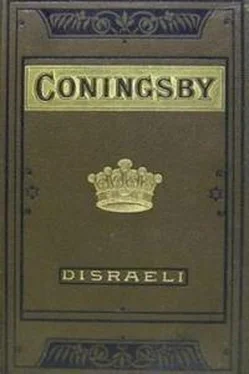
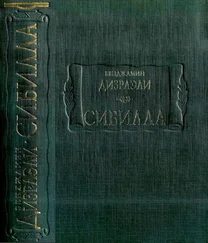
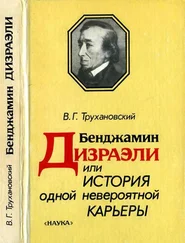
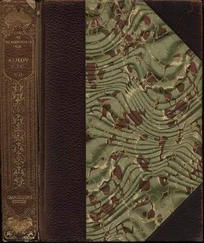

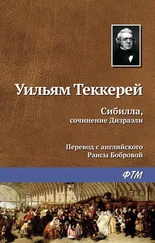
![Мелани Бенджамин - Госпожа отеля «Ритц» [litres]](/books/384861/melani-bendzhamin-gospozha-otelya-ritc-litres-thumb.webp)

